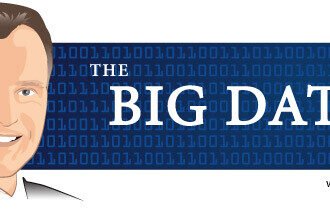One of the challenges in delivering successful data-centric projects (e.g. analytics, BI, or reporting) is realizing that the definition of project success differs from traditional IT application projects. Success for a traditional application (or operational) project is often described in terms of transaction volumes, functional capabilities, processing conformance, and response time; data project success is often described in terms of business process analysis, decision enablement, or business situation measurement. To a business user, the success of a data-centric project is simple: data usability.
It seems that most folks respond to data usability issues by gravitating towards a discussion about data accuracy or data quality; I actually think the more appropriate discussion is data knowledge. I don’t think anyone would argue that to make data-enabled decisions, you need to have knowledge about the underlying data. The challenge is understanding what level of knowledge is necessary. If you ask a BI or Data Warehouse person, their answer almost always includes metadata, data lineage, and a data dictionary. If you ask a data mining person, they often just want specific attributes and their descriptions — they don’t care about anything else. All of these folks have different views of data usability and varying levels (and needs) for data knowledge.
One way to improve data usability is to target and differentiate the user audience based on their data knowledge needs. There are certainly lots of different approaches to categorizing users; in fact, every analyst firm and vendor has their own model to describe different audience segments. One of the problems with these types of models is that they tend to focus heavily on the tools or analytical methods (canned reports, drill down, etc.) and ignore the details of data content and complexity. The knowledge required to manipulate a single subject area (revenue or customer or usage) is significantly less than the skills required to manipulate data across 3 subject areas (revenue, customer, and usage). And what exacerbates data knowledge growth is the inevitable plethora of value gaps, inaccuracies, and inconsistencies associated with the data. Data knowledge isn’t just limited to understanding the data; it includes understanding how to work around all of the imperfections.
Here’s a model that categories and describes business users based on their views of data usability and their data knowledge needs
Level 1: “Can you explain these numbers to me?”
This person is the casual data user. They have access to a zillion reports that have been identified by their predecessors and they focus their effort on acting on the numbers they get. They’re not a data analyst – their focus is to understand the meaning of the details so they can do their job. They assume that the data has been checked, rechecked, and vetted by lots of folks in advance of their receiving the content. They believe the numbers and they act on what they see.
Level 2: “Give me the details”
This person has been using canned reports, understands all the basic details, and has graduated to using data to answer new questions that weren’t identified by their predecessors. They need detailed data and they want to reorganize the details to suit their specific needs (“I don’t want weekly revenue breakdowns – I want to compare weekday revenue to weekend revenue”). They realize the data is imperfect (and in most instances, they’ll live with it). They want the detail.
Level 3: “I don’t believe the data — please fix it”
These folks know their area of the business inside/out and they know the data. They scour and review the details to diagnose the business problems they’re analyzing. And when they find a data mistake or inaccuracy, they aren’t shy about raising their hand. Whether they’re a data analyst that uses SQL or a statistician with their favorite advanced analytics algorithms, they focus on identifying business anomalies. These folks are the power users that are incredibly valuable and often the most difficult for IT to please.
Level 4: “Give me more data”
This is subject area graduation. At this point, the user has become self-sufficient with their data and needs more content to address a new or more complex set of business analysis needs. Asking for more data – whether a new source or more detail – indicates that the person has exhausted their options in using the data they have available. When someone has the capacity to learn a new subject area or take on more detailed content, they’re illustrating a higher level of data knowledge.
One thing to consider about the above model is that a user will have varying data knowledge based on the individual subject area. A marketing person may be completely self-sufficient on revenue data but be a newbie with usage details. A customer support person may be an expert on customer data but only have limited knowledge of product data. You wouldn’t expect many folks (outside of IT) to be experts on all of the existing data subject areas. Their knowledge is going to reflect the breadth of their job responsibilities.
As someone grows and evolves in business expertise and influence, it’s only natural that their business information needs would grow and evolve too. In order to address data usability (and project success), maybe it makes sense to reconsider the various user audience categories and how they are defined. Growing data knowledge isn’t about making everyone data gurus; it’s about enabling staff members to become self-sufficient in their use of corporate data to do their jobs.








